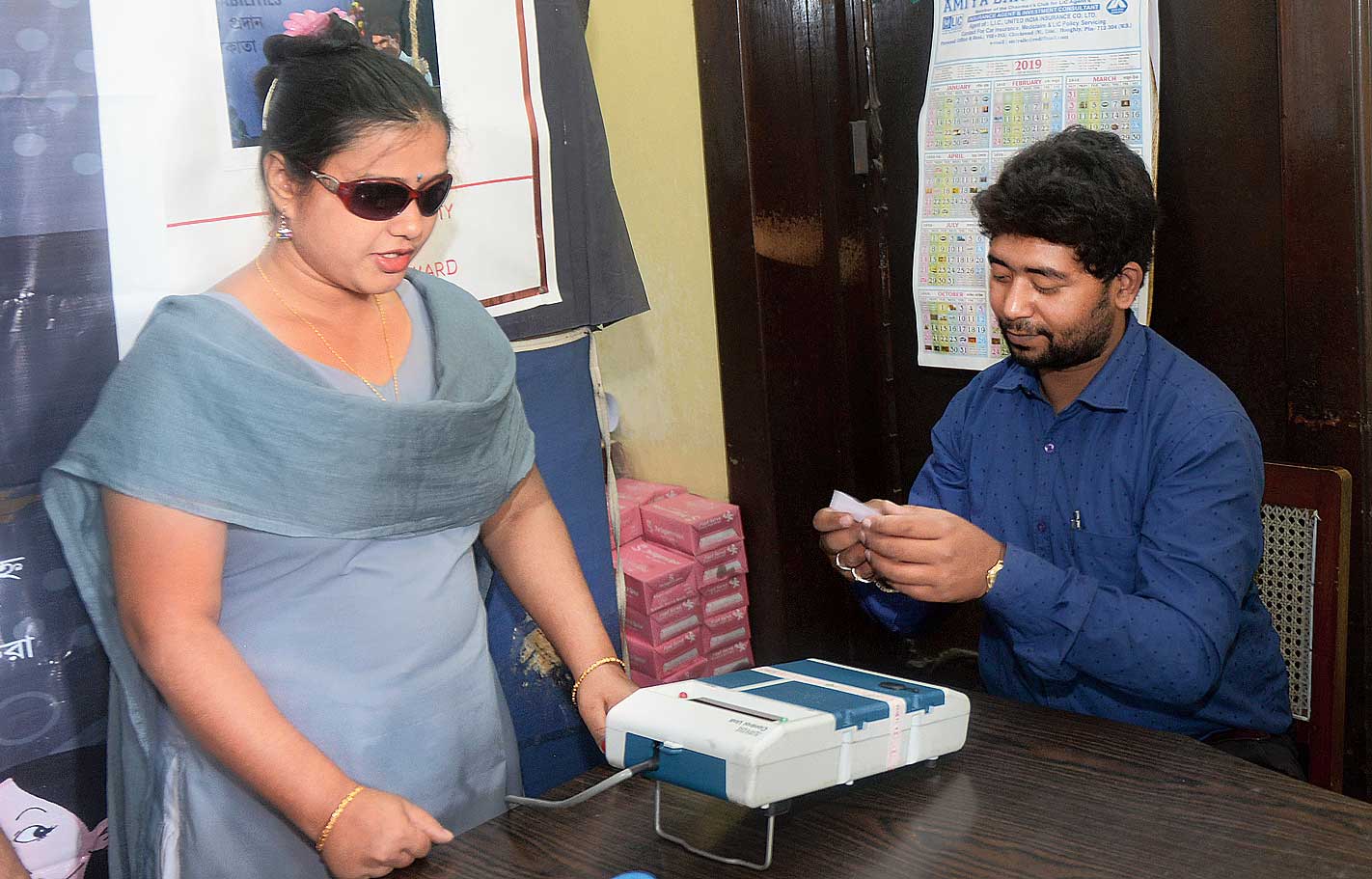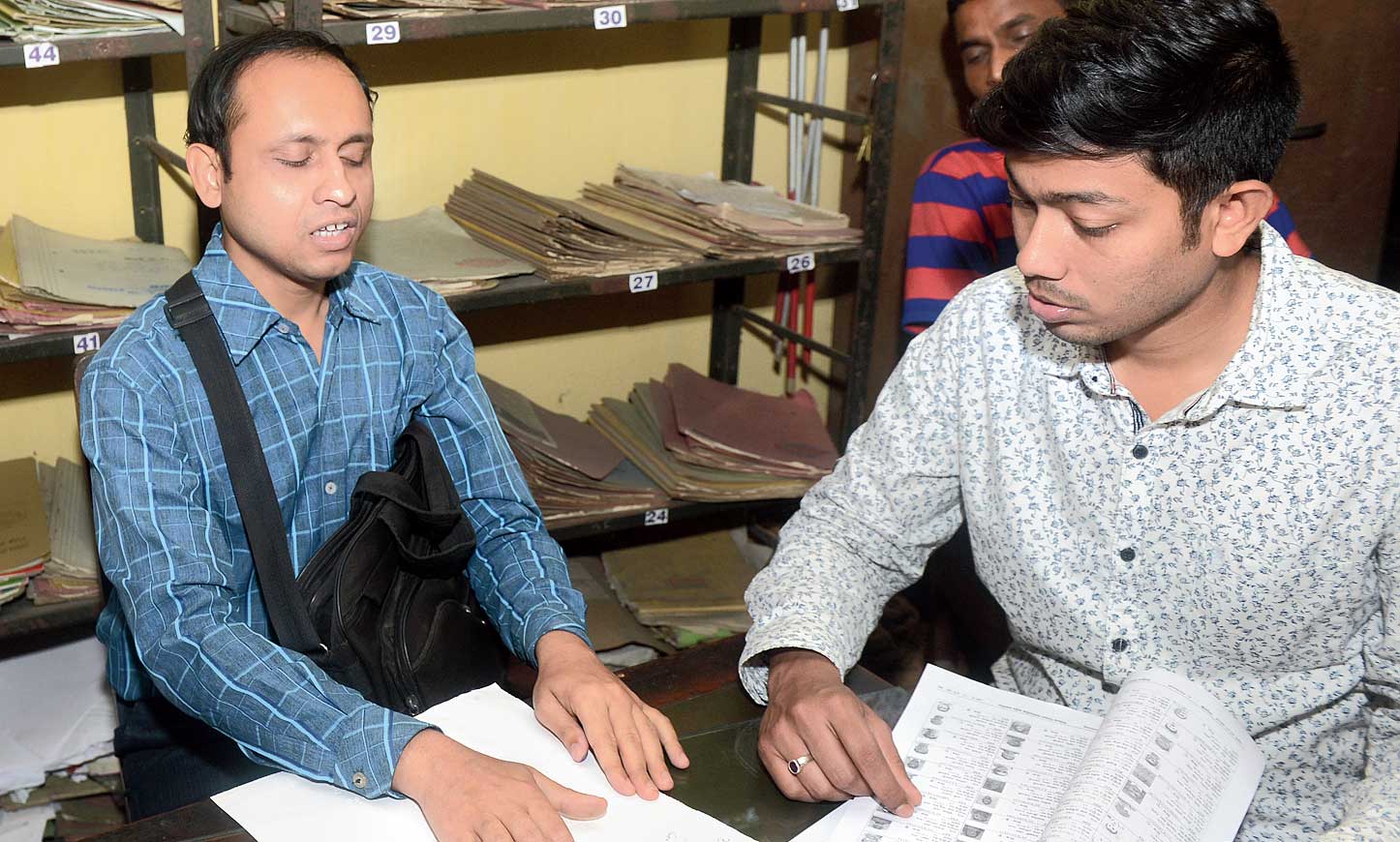Dilip Sahoo, 30, hates to depend on others in doing his daily chores, despite being blind.
But he could not vote without help in East Midnapore in the 2016 state elections.
There was no dummy Braille ballot paper in the polling booth and polling agents offered to accompany him to the electronic voting machine. “I refused and took my father with me. But I would have preferred to cast my vote alone,” Sahoo said.
Dummy Braille ballot papers are kept at polling booths to familiarise the disabled with the voting process before they cast their votes on electronic voting machines.

Another participant practises on a dummy Braille ballot paper at a mock voting exercise for the disabled at Ramakrishna Mission Blind Boys’ Academy in Narendrapur on Saturday. Picture by Bishwarup Dutta
Sahoo was among the participants in a mock voting exercise for the disabled at Ramakrishna Mission Blind Boys’ Academy in Narendrapur on Saturday.
The Systematic Voters Education and Electoral Participation, the awareness programme for the disabled, was organised by the local administration. More than 50 people with varying degrees of blindness attended the workshop where a mock polling booth was set up with a presiding officer and three polling officers.
“The theme of this year’s poll is accessible election. The commission wants to ensure that no voter is left behind,” Debarati Sarkar, the sub-divisional officer of Baruipur, who helmed the awareness programme, said.

An EVM with Braille signage. Picture by Bishwarup Dutta
The Baruipur division has close to 9,000 people with disabilities as registered voters, she said.
There are close to 300,000 disabled voters in Bengal, an official at Nabanna said. The highest is in Murshidabad (more than 30,000). Birbhum follows with more than 23,000.
The Election Commission of India has directed the district magistrates to create a database of disabled voters and specify the nature of disability in electoral rolls to prevent political workers from influencing them or casting their votes in the guise of “assisting” them.
Such rolls will be given only to the presiding officers and not to the voters or parties.
Nanhe Kumar Singh, a resident of CR Avenue, has received such “assistance”. The 34-year-old voted last in the 2016 state polls. “I am used to refusing party agents offering to accompany me to the voting machine.” In one election, there were dummy ballot papers in Braille, Singh said. “But it was so badly rolled that the dots had almost vanished. It was of no use.”
The dummy ballot sheets in Braille should contain the serial number and names of candidates in the same order in which they appear on the EVM. The name of a candidate’s party should be printed beside his/her name.











